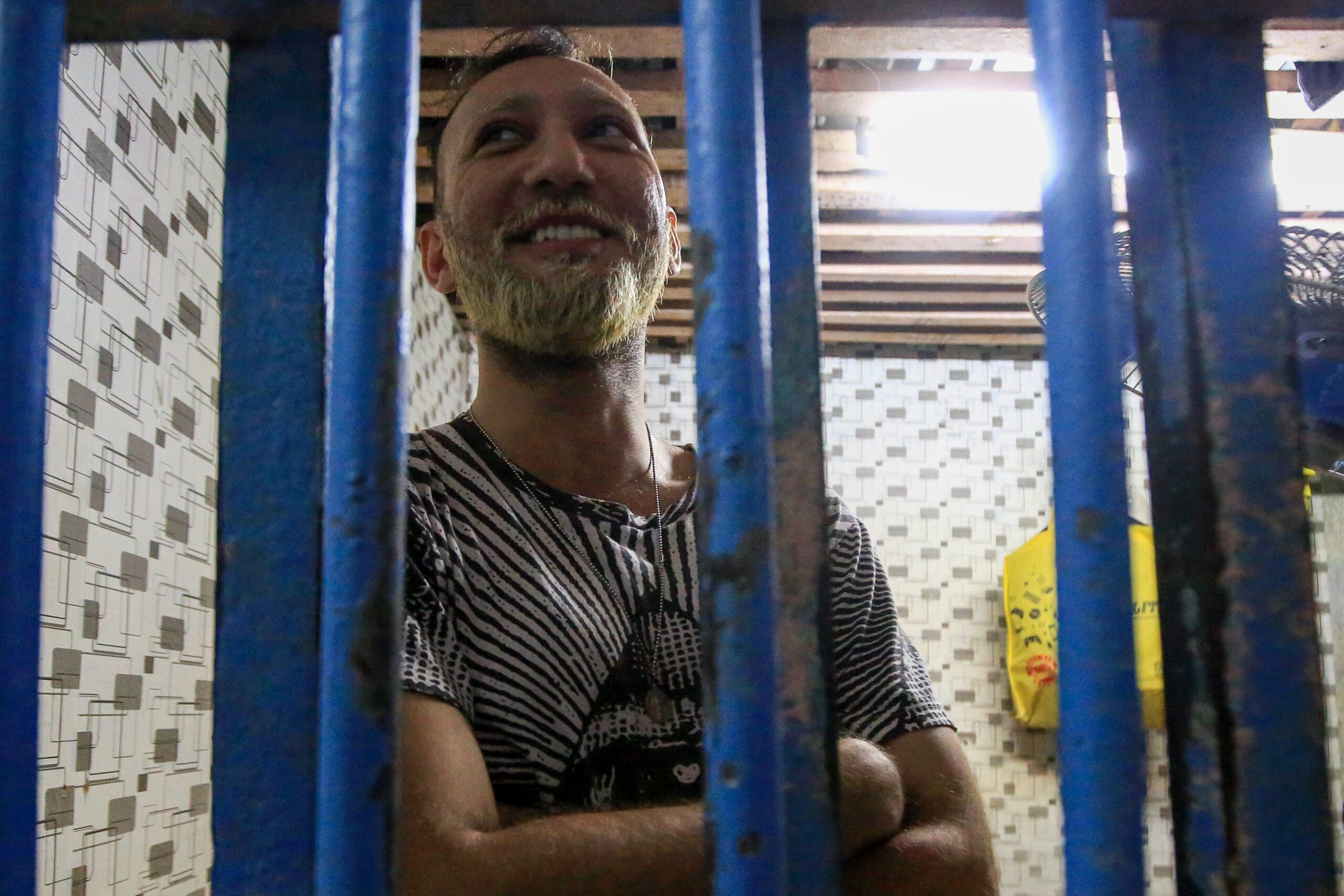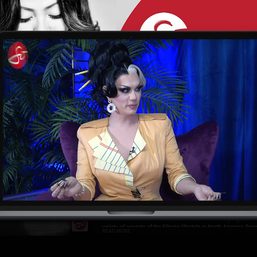SUMMARY
This is AI generated summarization, which may have errors. For context, always refer to the full article.

Matthew 26:26 says Jesus took bread, broke it, gave it to his disciples, which was the first thing that Amadeus Fernando Pagente (drag name: Pura Luka Vega) did in jail: to ask for bread and share it with the detainees. Ironically, it was dressing up as Jesus Christ in drag and performing the Catholic Church song, Ama Namin that got Pura behind bars.
Not that it was done on purpose. It was the least and most immediate thing Pura could do to help the other detainees. “They were asking. They were really hungry, you can see it, you can feel it,” that’s why “bumili ako ng maraming tinapay, kain tayo ng tinapay (I bought lots of bread and I said, let’s eat bread)!”
Pura has had three warrants of arrest, posted P1.2 million in bail for those warrants, all in all 11 counts across four venues over criminal charges of indecency and immorality. All because Pura performed Ama Namin in drag, which irked religious individuals, some of whom ended up taking the drag artist to court, and then to jail. The longest Pura spent behind bars was three days, before getting a release order.
“Food is the biggest problem for the inmates, to have food all the time. Because they rely on people who visit jails. It’s very scarce,” said Pura on Rappler Talk.

‘Laws are used against us’
The Philippines’ 1987 Constitution guarantees freedom of expression. But the country’s pre-war revised penal code has a clause, Article 201, that prohibits “immoral doctrines, obscene publications and exhibitions and indecent shows.”
Pura has been charged with 11 counts of those, compounded by the Cybercrime Law – which has more severe penalties – because the complainants cite the TikTok videos as sources for the offense. There’s also Article 133 that criminalizes offending religious feelings, although an explicit element of this crime requires that the offense must be done at “a place devoted to religious worship, or during the celebration of any religious ceremony.” Pura performed Ama Namin during a drag show.
“For countless of times, as a queer person, I’ve had people use the bible as a weapon against us, and now we have laws that are used, same thing, as weapons against us,” said Pura.
In a key win last November, the Tacloban City Office of the Prosecutor dismissed one set of Article 201 complaints against Pura filed by a pastor because “taken as a whole, the performance in question has serious literary, artistic or scientific value.”
Philippine jurisprudence established only four kinds of speech that is not protected: 1.) Obscenity (thus the regulation against porn) 2.) False advertising 3.) Libelous statements and 4.) Fighting words (or words that incite to harm and danger).
In the resolution, the Tacloban prosecutor cited a 2006 Supreme Court case which says that to call something obscene, it must pass these legal tests:
- it appeals to the prurient interest (having excessive interest in sexual activity)
- it describes or depicts, in a patently offensive way, sexual conduct specifically defined by the applicable state law
- it lacks serious literary, artistic, political, or scientific value
The prosecutor believed that Pura’s performance had serious literary, artistic or scientific value, “in fine, the complaint must necessarily fail,” the short 3-page resolution read.
This decision does not bind any other prosecutors, and whatever court win Pura might get also would not bind any other judge. Ideally, human rights and free speech advocates would rather declare Article 201 unconstitutional. That there is now momentum to push for that, Pura said, makes the situation “less miserable.”
“If I always think about myself, then definitely I’ll think about how miserable the situation is. But I have to separate myself: what does this mean for other queer people, for expression, for people around me, what does this mean with accepting one’s differences?” said Pura.
“I’d rather go through that and really push for the unconstitutionality of all of these laws. They can use it if they had the chance, if not [against] me, then someone else in the future,” Pura added.
Access to justice
Pura has been able to pay bail, and afford all the other costs of facing 11 cases, now down to only four, because of “people who chipped in,” not least of whom are other drag queens who initiated crowdfunding efforts.
“Not everyone has access to being represented well, or getting the justice that they deserve, or just even to have a fair chance at justice or freedom,” said Pura, who is represented by lawyers who include the firm Leflegis, the team behind the win of urban poor residents who were charged by the police during the pandemic for protesting for food aid.
Philippine jails are the world’s second most crowded, next only to Congo and followed by Uganda and Cambodia, according to the world prison brief of the UK-based Institute for Crime and Justice Policy Research. Pura saw that firsthand, saying “the conditions were a little sad, it shows that not every jail or prison is equipped with certain things.”
The 3-day imprisonment experienced by Pura was “short,” although the prospect of even staying in jail overnight is too daunting for some people. “Time is relative. People don’t know this, but I have an uncle who was in prison, so I used to visit him, so it’s not something very alien to me,” Pura said.
“You have to experience a lot of difficult situations for you to get a handle of how to approach it better,” said Pura, a public health worker whose prior work in mental health policy helped in coping with the stress brought by the charges.
Stronger faith
The charges against Pura range from accusations of disrespect and insult against religion, and even mockery of Jesus Christ by “insinuating that Jesus Christ is gay.”
Pura told the different courts that the performance was an expression of Catholic faith; the belief that Jesus Christ embodies “inclusivity, whimsy, joy, and advocacy for the oppressed.”
“I do not intend to indoctrinate people, or tell them how they should worship. Faith is very personal, the way that you express is personal, no one can take that away from you, I can’t take that away from anyone,” said Pura.
“If your faith in a divine being is really firm and strong, whatever expressions other people have should not faze you. What I did should not bother you, I think, if your faith is strong,” Pura added.
Drag is attacked around the world. In the United States, several states have passed laws to ban it, although these have been challenged before courts. In Lebanon, a bar holding a drag show was attacked by an anti-LGBT group.
“People have always used this narrative that drag influences or corrupts children. How? I don’t think it does, it is just an art form,” said Pura. Despite the legal battles, Pura won’t “trade drag for the world.”
“I’ve had more faith, it didn’t waiver. God has been with me, my friends, my family, and the people who supported me. I have that belief in a divine being. I don’t take it against other people who don’t have that belief, you’re free to believe whatever you want. But for me, I think – thank you, Lord.” – Rappler.com
Add a comment
How does this make you feel?










There are no comments yet. Add your comment to start the conversation.